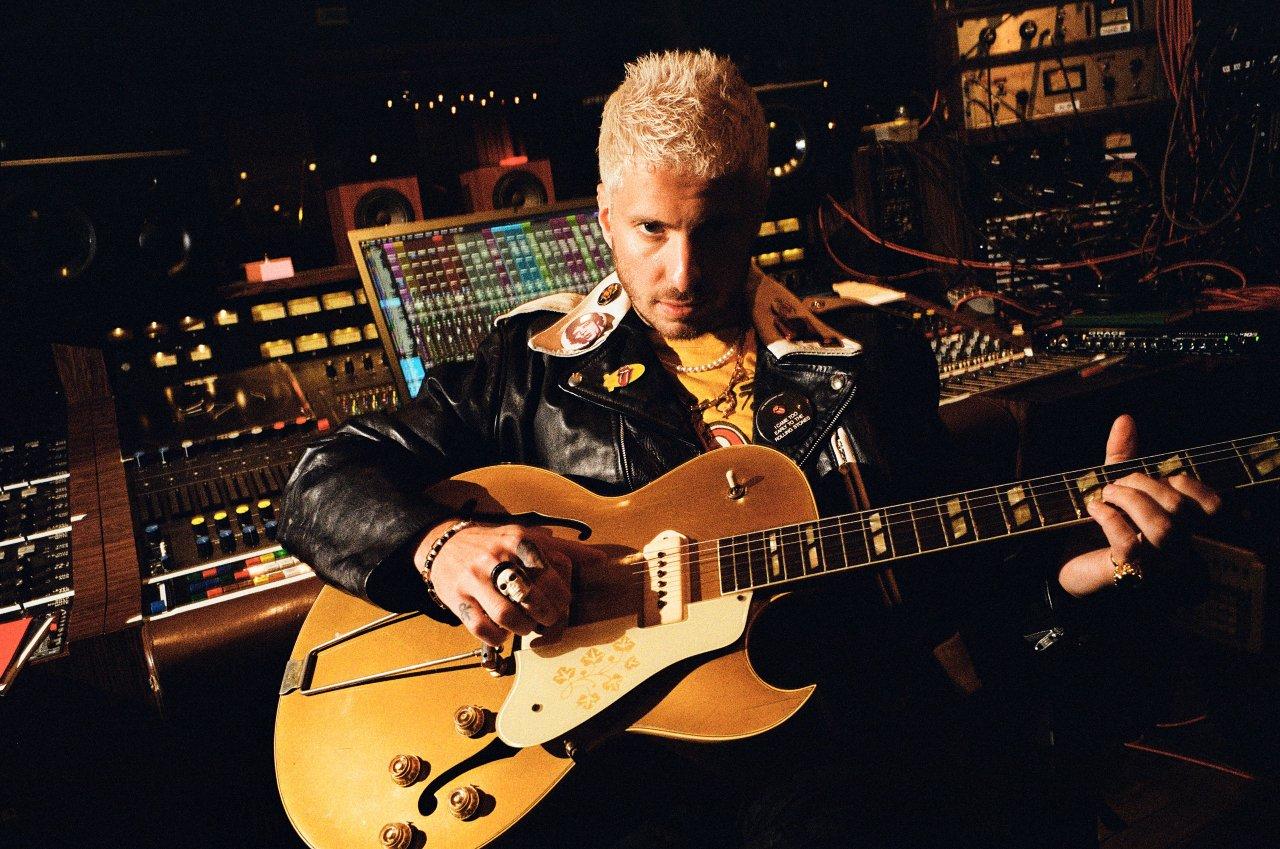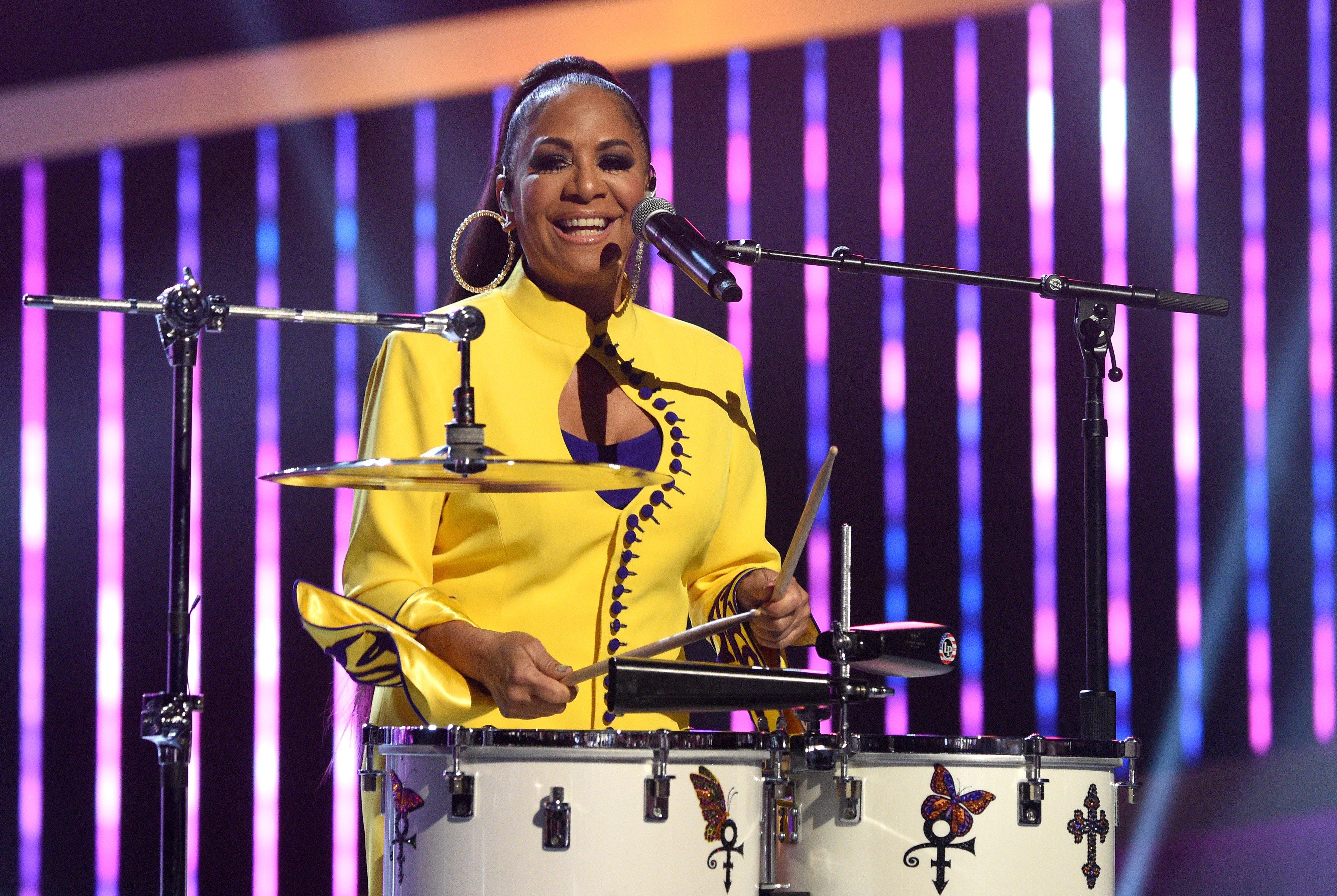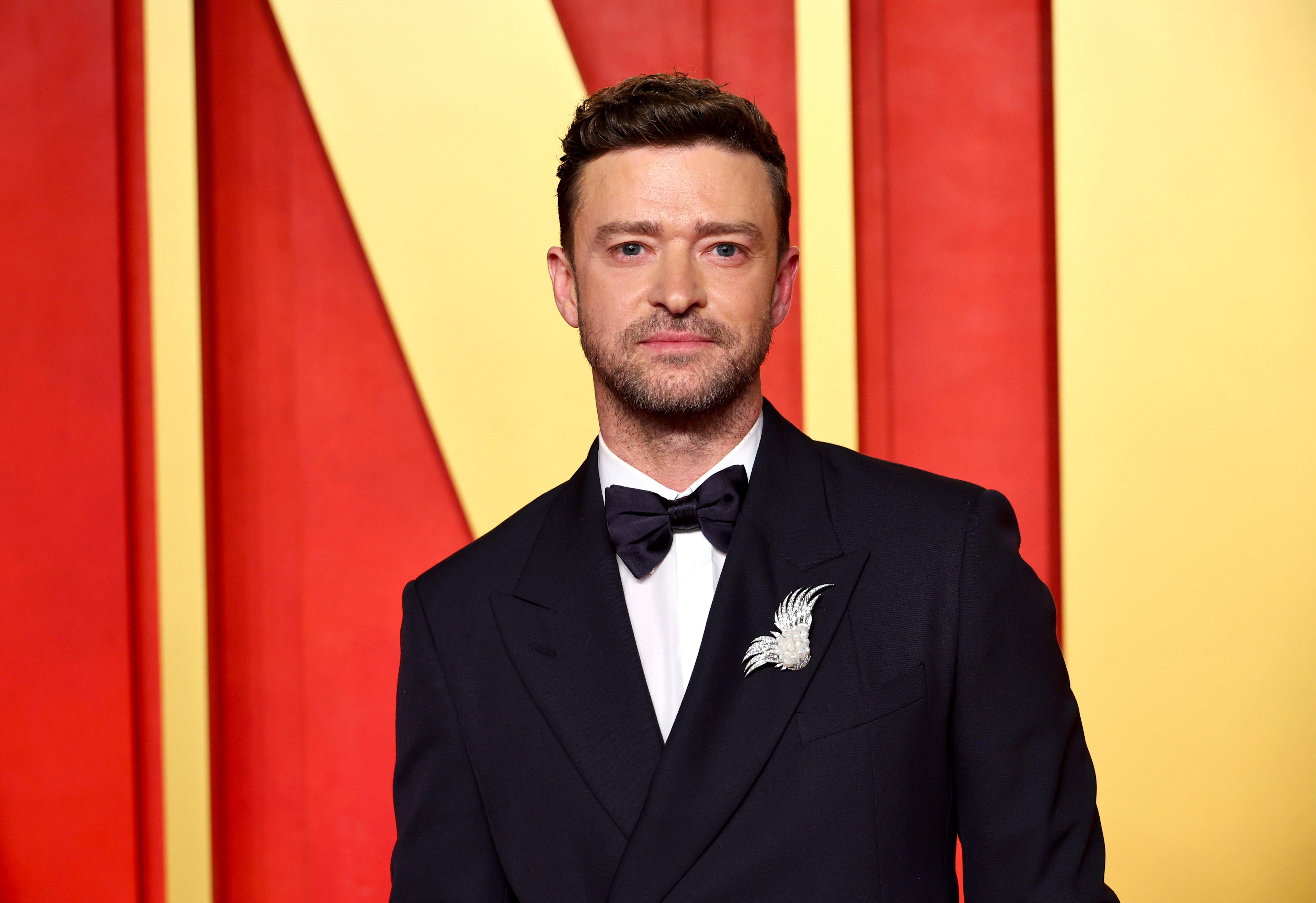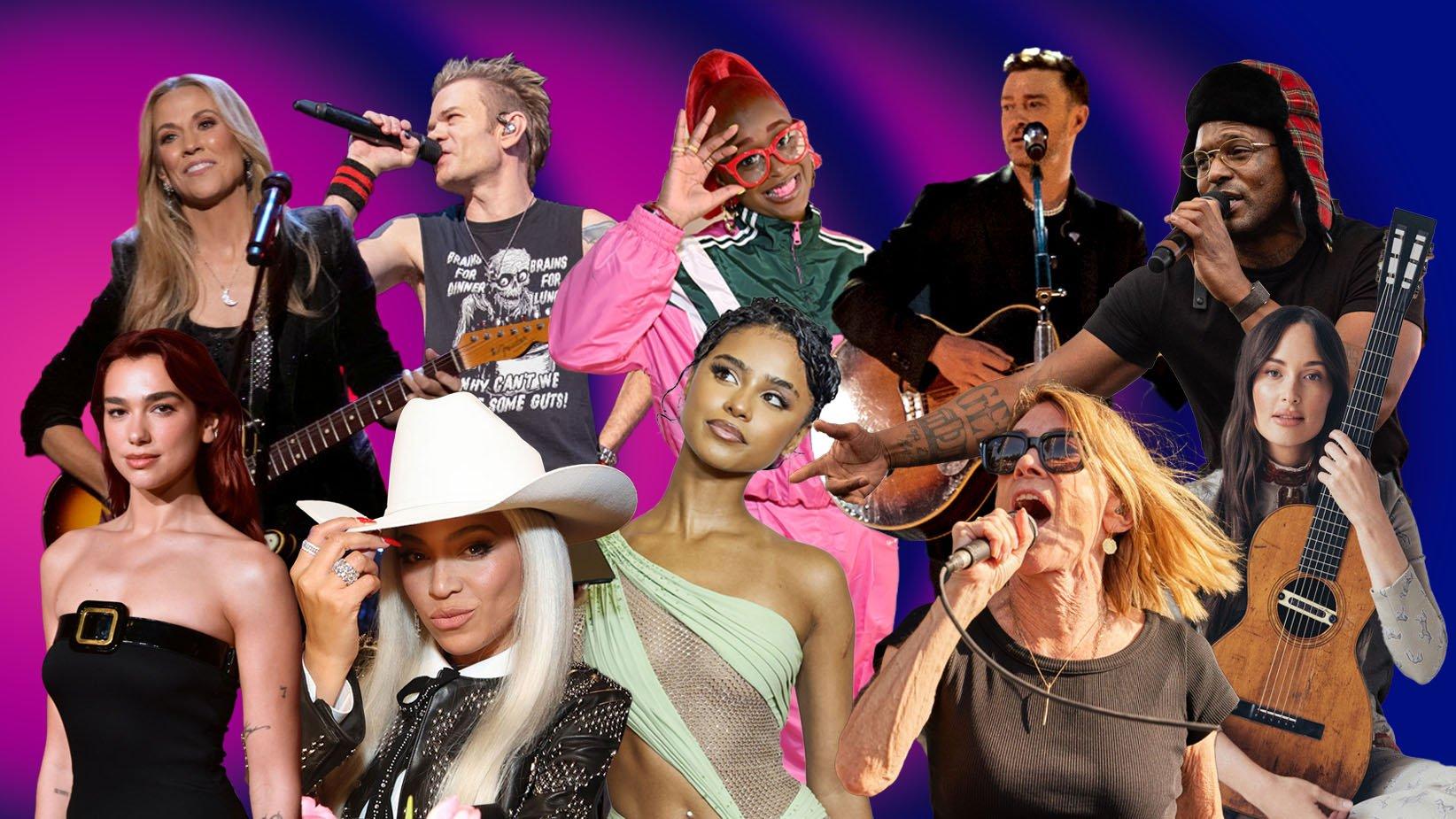GRAMMY-nominated singer/songwriter, producer and percussionist Sheila E. has certainly had a glamorous life — and has done a lot with it.
The child of percussionist Pete Escovedo and goddaughter of legendary timbalero Tito Puente, Sheila Escovedo has been energizing stages for most of her life. First performing as a child, Sheila was one of few female percussionists in the 1970s and '80s, and rose to the upper echelons of the music industry — performing alongside Marvin Gaye, Michael Jackson, Lionel Richie, Herbie Hancock and Diana Ross. Whether in session or onstage, her dynamism and inventiveness continually made Sheila the star of the show.
"I think outside the box," Sheila E. tells GRAMMY.com. "You just come up with ideas and it doesn't have to be traditional. It just has to be from your heart, a feeling that makes sense, that compliments whatever song it may be."
Sheila's energy and unique approach to playing drums, timbale, and percussion caught the attention of Prince, a unique artist in his own right. The two spent decades as creative partners – Sheila acting as the Purple One's drummer, producer, musical director and, for a time, romantic partner; Prince shepherded her 1984 solo debut, A Glamorous Life, into being — and worked together until his death. Among her lasting contributions to their musical legacy, Sheila performed on the Purple Rain sessions and toured the album, and her vocals appear on "Erotic City." The two duetted on Sheila's 1986 single "A Love Bizarre" and, fittingly, got engaged in the middle of a performance.
In addition to her list of impressive accomplishments (which include co-founding the educational nonprofit Elevate Oakland), Sheila E has released eight albums as a solo artist. Her ninth, Bailar, finds the one avenue Sheila had yet to pursue: salsa.
Recorded in Miami with a cast of local musicians, the 10-track record features originals and covers in both Spanish and English, and its lead single — an energetic cover of Celia Cruz's "Bemba Colorá featuring Gloria Estefan & Mimy Succar — fittingly has Sheila playing percussion, timbale and singing.
"This is the best record I've ever done. I feel that good about it," she says. Ahead of Bailar's April 5 release, Sheila E. spoke with GRAMMY.com about creating music in a new idiom, the importance of collaboration, and finding space in music.
This interview has been edited for clarity.
You've been working in the funk, R&B and pop space for years. What brought you to salsa now?
I've wanted to do a salsa record for a long time. My bucket list is extensive, and then I met [GRAMMY-winning producer and timbale player] Tony Succar in 2015… he did a project and took Michael Jackson songs and flipped them into salsa. I said, "Man, if I ever do my salsa record, we have to do it together because you understand."
I'm bringing that Oakland vibe to salsa. My dad was a Latin jazz artist — that's the foundation of who I am — however, he also played salsa music in the house. I grew up listening to Tito Puente, Mongo Santamaria, Ray Barretto, Eddie Palmieri, Celia Cruz and Tito Rodriguez, and the Fania All-Stars. Our whole family loves salsa dancing.
There was music that I had written for an R&B album that I didn't release, and I said we can take some of this and flip it into salsa. This is another side of me that I'm excited about sharing with the people.
Bailar sounds like something you would hear in New York or Miami, but there's something slightly different about it. What are you bringing to this record that might be different from another salsa band?
Salsa is very demanding. It's specific and traditional; there are things that are supposed to be played in specific sections of a song — whether it's a conga rhythm, a timbal rhythm, a cowbell rhythm. The element of the Bay Area and the Latin jazz with a little bit of funk, that was me [adding something new].
I always wanted to do "Bemba Colorá." I did a rumba in front of it and took a conga solo, and when I got to the half-time of that song, I said, "I want to take a drum solo." I don't think anyone has taken a drum solo or have even played drums on this song…especially a woman. Just adding different elements like that, as well as the way that I mix: where I place the horns and where I place the percussion and where the bells are and where the drums are.
Tony Succar and I produced this record together. I did a couple of arrangements [and] co-wrote seven of the 10 songs. The songs that I had already written were arranged, but then we wanted to flip them into salsa.
Are there any other songs on this record that you're particularly proud of?
All of them. Every one is a different story. The only woman that I could think of to call [for "Bemba Colorá"] was Gloria Estefan; she's like my sister. Mimi Succar is a new and upcoming artist, so we had her to sing as well, and the three of us just had a blast.
[Also] playing "Anacaona," which is a song I used to hear [by] Fania All-Stars and Cheo Feliciano. My dream was to have Rubén Blades sing on my record; he sang that song and I started crying. I was just overwhelmed.
["El Rey del Timbal"] was one song that I had played with Tito [Puente] and my dad many times. When Tony sent me the demo, I listened to it and was like, "We got to go way faster than that. If Tito was playing it, he would've played it this way, and I know because I've played it with him." So I started taking a solo, banging my legs while I was listening to it through the phone, and I just kept going faster, and then Tony's like, "Are you serious? This is 200-something BPMs."
It was perfect for me taking the timbale solo, but when I had to then overdub and play all the parts on the bells and everything, it was so fast, I was like, What was I thinking? The horn section had it worse. A trumpet player yelled on the track — "Ahh!" — and I boosted him yelling [on the final mix], because that's real stuff. It took everything for them.
I'd love to hear a little bit about your relationship with Tito Puente and any important musical lessons he taught you, especially now that you're coming out with an album that's very much influenced by his work.
He was such an influence. He was amazing. He did so much for us as a family, musically, as well as being our friend and growing up listening to him. He and my dad met when they were 18, and having him around the house when I was growing up, I didn't even know he was.
The biggest thing was we would go to New York, my dad and I, and we would sit in with Tito at the Palladium and the Corso. And back then, you'd have four bands playing in one night until 6 in the morning. And they would jump from one club to the other. It was the most stressful time because, as jazz artists, we didn't hardly sit in with salsa bands. I was like, "But papa, I don't know the clave, I don't understand what bell pattern or what conga pattern to play." He goes, "Don't worry about it. You don't listen to those guys. You just go play you."
So he kept encouraging [me]: it doesn't matter, you have the heart to go ahead. And my pops would say the same thing: We might not understand it technically, but we play it from our heart. [Tito] always encouraged me, and I got to play with Celia, Tito and [bassist] Cachao [Lopez] at the same time.
What a dream come true. Tito introduced me to all of these musicians as well, but really just telling everybody, "You be quiet and just let Sheila play."
Read more: Celebrating Tito Puente's Centennial: 10 Essential Songs By The Mambo King
Bailar is a bit more celebratory than your last album, 2017's Iconic: Message 4 America, which was heavily political. Obviously we continue to live in increasingly fraught times; why was it important for you to put more positive messages out into the world? One of your tracks is even called "Possibilities."
We are living in hard times, and it's challenging. Things are changing every single day. And everyone is going through something every single day. One of the things that has been such a blessing to me is the gift of music. I don't take it for granted. To be able to share music and at least make people happy for the five minutes that you listen to this song or the entire record…is healing.
Many times in my shows, people end up crying. It's emotional, and music brings joy. It lifts you up. It brings you to a place of happiness and love, and we just want you to have a good time. But the joy that I get to be able to do this, it heals me too. And I just thought it was important.
Your work and relationship with Prince is so extensive and deep. What would you consider the peak of your creative partnership?
I don't think there ever was. We continued to grow and just kept experimenting on different sounds, and recording and jamming. We first jammed together in 1977 when he came to my house. We either recorded or played together [on] so many songs. There's still tons of stuff in the vault…I counted at least 200 songs I played on that I haven't even heard yet.
We were always jamming, coming up with something, or recording. A lot of times I would engineer for him as well; it's just he and I [in the room] most of the time. I taught myself some engineering when I was growing up; I saved all my money and started buying recording gear so I could learn how to write and produce myself when I was in my teens.
So when I started to record with [Prince], I had already recorded songs on tape before. Being in the studio with him, we would see who could stay up the longest, who's going to fall asleep first. We would catch each other [falling asleep] almost at the same time.
*You also worked with Prince on your debut album, 1984's The Glamorous Life. You'd been working so much as a musician up to that point already that it's interesting to think of it as your debut. How did you work on that project together?*
We had already been jamming and playing together before we did all that. And I had been out on tour with so many artists beforehand; when we first met, I was already touring with George Duke in the mid-'70s. [Prince was] like, "I've been watching you and I'm following your career, and maybe one day we could do something together."
He started doing all these albums, and then he becomes the Prince that we all know. He changed every record, which was amazing musically. At the time [we recorded Glamorous Life], he was at Sunset Sound [recording studio and] he had all the rooms going at the same time. We just went in and started recording.
Prince was very involved in getting me the deal with Warner Brothers. He just one day said, "You want to do the record now?" And I was like, "Yeah, I think I'm ready. Let's do it." It was that simple. We went into the studio and we were pretty much done with my record, from top to bottom, in a week.
We just stayed in there, literally no sleep. We were so excited. We had so much fun.
Back then, I wasn't really playing drums a lot. I wanted to make sure that my percussion was in the forefront, and he knew that too. That's how Glamorous Life came about, to showcase me in a light that I wasn't really a singer. I was a percussion player leading my band, playing timbales, which no one really understood because, in pop culture, no one had done that.
So it took even a minute for [Warner Brothers] to understand releasing the record. They wanted to release "Belle of St. Mark" first as the single and not "Glamorous Life"; I had to fight them on it because I said, "'Glamorous Life' is a song that is important to me, and it showcases me as a percussionist and a singer. If I do 'Belle of St. Mark,' it's only me singing. I'm not even playing percussion."
I would love to hear about other musical collaborators who are a big part of your story.
I've been able to play with so many people: George Duke and my dad, and [drummer] Billy Cobham, [bassist] Alfonso Johnson, and it went on. Then [jazz guitarist] Lee Ritenour and [jazz pianist] Patrice Rushen and all of these other artists; Herbie Hancock…. Then you go switch over to Marvin Gaye, and then you go to Brooks & Dunn. I just hopped all over the place with Con Funk Shun and sitting in with so many people and recording. When we do these events, you get to sit and play with Phil Collins and Elton John; I'll just play percussion, I'll be the backup. I don't need to be in the front. Part of what I love is I get to be on both sides.
I can be a team player and play with a group, which is so exciting. Or if you want to feature me, that's fine. That's kind of what had happened throughout my life; anyone that I performed with would just say, "Sheila, you just go out in the front." They would push me out there. Marvin Gaye is like, "Sheila, you take over. I'm going to go back and change." He made it a part of his show. And then same thing with Lionel Richie. Everyone would just feature me, it became that thing. Everyone has influenced me in some sort of way.
You're out there being featured and just putting so much into your performances. You have this incredible amount of energy. What powers you?
God's given me the gift and point-blank. I am forever grateful to be able to do what I get to do because of that gift. I don't take it for granted.
You have musical directed the Obama's Festival Latina, the Recording Academy's Tribute to Prince, and of course, you were his musical director for many years. Does that work require a special set of musical muscles?
When it comes to music and just being an artist, whatever you put into it is what you get out. I would always do the homework that was needed to play with an artist — learn all the music — so when I walked into a situation, I would walk in with confidence. I wasn't a great reader at all; it was really all by ear. That preparation is everything.
Putting together my first ever band during that time in the early '80s, I knew what I wanted. [Today] I'm able to put together projects and put the right people together. For some people, it's just a gig and for me, it's more than that. It's a lifestyle and it's family and it's trust and it's respect.
How did you choose the music for "Let's Go Crazy: The GRAMMY Tribute To Prince"?
Some of the songs they already had, some of the other songs I suggested. Almost everything that they were going to play, I knew and I had a lot of the original music. I had a lot of the samples; I had Prince's vocals. There were things that I had that could help in some of the arrangements, and a lot of the arrangements I used from my show.
You try to adjust to make sure that [the artists] shine and that they feel comfortable, because everyone was really nervous. I had many conversations with people making sure, "Is this a good key for you?" Making sure that "You don't have to sing it like Prince. This is your representation of who you are and you happen to be doing a Prince song and no one's going to judge you for it."
Speaking of collaborative efforts, The Greatest Night in Pop music doc came out recently. What do you remember from recording "We Are the World"?
I kind of didn't want to do it because, initially, we were on the Purple Rain tour [and] we were exhausted. At some point I thought, Do I even belong in that caliber of people?
[At the "We Are The World" session,] everyone was hanging out, everybody was really cool. No one had a huge entourage. I was excited to meet people I hadn't met before. One of the people I was excited about meeting was Cyndi Lauper. I loved her. I wanted to meet Bruce Springsteen, the boss.
In that moment of being in that room with everyone, and it was just amazing to [think], Wow, we're going to do something incredible to be able to raise money for people who are starving. Then you just take a breath and you do what you do, and then things happen.
Do you think that you have changed or contributed to the sound of percussion in R&B and pop music?
My style is my style. Different artists from the Bay — Sly and the Family Stone, Carlos Santana, my dad's band [Azteca], Grateful Dead, Tower Of Power, of course, Pointer Sisters — listening to all those bands and being able to watch their rehearsals when I was a teenager influenced me.
The key was being adaptable to what needed to be for that specific song. You have to make up your own beats, because being a percussion player is like [working on] a beautiful painting that's already painted and they're asking you to put one color in there or you see a space — what would you put in that space?
It's not about playing all over the place and playing something that doesn't belong. You have to figure out those spaces and, to me, the most important part of music is space. That space is what allows a song to breathe.
I would use different things even in the studios; I didn't use all of the right mics all the time. I would bite on an apple and sample it and put that sound on top of the snare. I just experimented. I started on pots and pans, and I used keys, and I used a spray bottle can that blows out air to clean your computer as a high hat. Everything can be musical.
One of the biggest things is Michael Jackson's "Don't Stop 'Till You Get Enough." Quincy [Jones] had called me and said, "Michael wants this kind of sound, I don't know what it is, bring all your toys." I brought everything. I ended up getting two bottles and I poured water in it, and I used the holder to play the triangle on the sides of the bottle. So "Don't Stop 'Till You Get Enough" has those bottles.
You just come up with ideas and it doesn't have to be traditional. It just has to be from your heart, a feeling that makes sense, that compliments whatever song it may be.
Are there any other female percussionists out there right now that you see carrying the torch that you lit?
Oh my God. There are so many drummers right now. I go on social media frequently throughout the week, and I try to find at least someone new and DM them and say, "You're amazing. God bless you. Thank you for your gift. Keep doing what you're doing," and people freak out.
That's part of my job, to continue to encourage the young people to keep playing.
You've mentioned in previous interviews that you've dealt with a lot of harassment throughout your career as a woman playing an instrument that women don't traditionally play. I'd like to know how you continued to move forward and own your vision in an industry, and in an era, where women are often belittled or posited as like sex objects.
When I first started, I didn't know it was a big deal that I was one of few — or one of one — that was doing what I was doing. In the Bay Area, you see a lot of women playing percussion. In Berkeley, we all go and hang out at the park and everyone plays and it's like 20 or 30 of us and whoever brings their instrument, they just jam with us.
Coming to L.A. and recording with other artists, when I walked into a room, the drummer would say, "Can you get me a cup of coffee?" And I'm like, "I'll get it for you but I'm not the receptionist or anything. I'm the percussion player." They would freak out.
When that first started happening and things were being said that were really rude and bad, I would go back to my parents. They would just say, "You just keep doing what you're doing. They're jealous or they're mad because you're there, or they've never seen anyone like you. You have a gift and you just go ahead. You learn the music, know what you have to do, so when you walk in with confidence, it's not an issue." A lot of the time, those musicians were not prepared, and I was, and they hated me even more because I knew everything.
I got so much joy out of performing. And even with all the nos and the nastiness and the stuff that was being said [like], "Hey, if you sleep with me," all of these other things. It just made me stronger. You keep pushing through; you just keep playing.
When you find your passion and that's your purpose, no one can stop you. I stand on that word.
Living Legends: Cuban Pianist & Composer Chucho Valdés On Developing "The Creation," Growing Up On The Island & Loving Dizzy Gillespie




